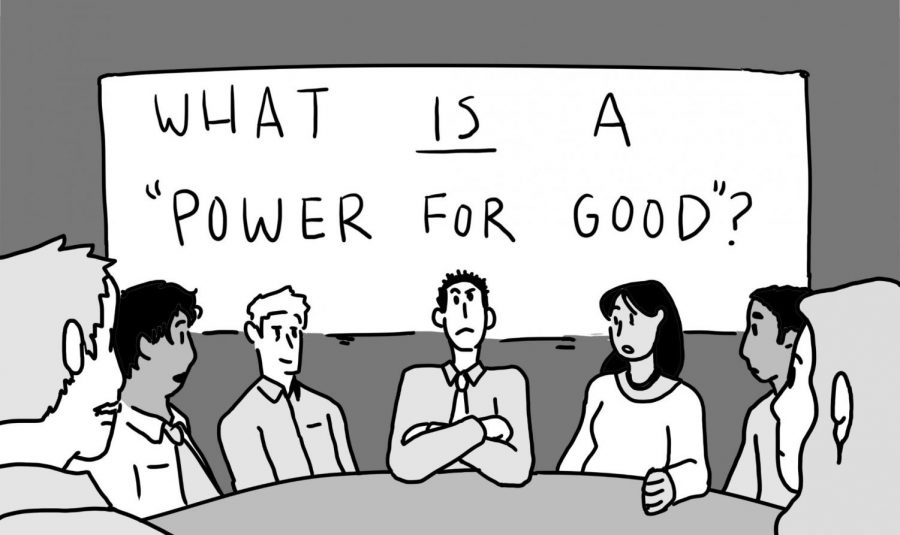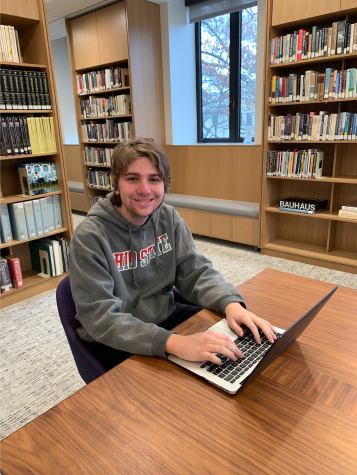Time for reflection as accreditation process begins
Teachers are coming together to finish the NYSAIS accreditation process, while reflecting on diversity and equity along the way. The accreditation process happens every ten years. Several subcommittees have been created in order to evaluate the school’s curriculum and mission ahead of the accreditation this year.
October 29, 2021
Ten years removed from their 2011 New York State Association of Independent Schools (NYSAIS) accreditation process, Masters is required to complete the program once again. Originally delayed a year due to the Covid-19 pandemic, the accreditation process, which is required for all independent schools within the NYSAIS, will take place over the next year.
Over the coming months, administration and faculty will come together in order to help complete this reflective accreditation process. In order for a school to attain accreditation, many facets of the school are examined, ranging from its curriculum to its finances to its mission statement. This year’s accreditation process will be headed by Jason Hult, an upper school history teacher and the director of learning initiatives. Although the process poses quite a large project for the entire school community, Hult spoke to the importance of going about this process thoughtfully and diligently.
“Honestly, we could do this [accreditation process] relatively quickly if we needed to, but it’s worth spending time on it because I think it will help us chart the future of the school,” Hult said. “Hopefully, what this process will do is it will define the questions that most deserve our time for the next five to 10 years.”
Peter Newcomb, head of the upper school, works on the student life and community committee as well as helps to answer general questions as a school administrator. In an interview with Tower, Newcomb relayed the value of honest reflection during this self-study process.
“It’s super important that this process reflect who we are, not who we want to be,” Newcomb said. “It needs to be an honest appraisal, and there will be things that we do really well and there will be things that are identified as like ‘Hey, this is something you need to look at.’”
Along with the student life and community committee, various other committees have been created for the accreditation process in order to address certain aspects of the school, such as financial sustainability and teaching and learning. In order for those committees to meet, Masters has implemented three two-hour delayed starts to make time for Middle School and Upper School teachers to come together to address those topics.
Despite the fact that the process is being led in school by faculty and administrators, Newcomb voiced that the process is meant to be a reflection in which the entire school community can participate.
“The leadership team, we talk about accreditation in our meetings and consider where there are parts that we may need to focus on, but by and large the work is being done collectively,” Newcomb said.
“It’s not like a top-down, just administrators are going to research this. It’s [about] getting lots of different constituencies involved in the process. [It’s] part faculty voice, student voice, administrative voice, and I believe there’s a parent voice component to it as well that will go out in the form of a survey later.”
Although much of the accreditation process is similar to that of the 2011 process, the 2021 study holds a couple of key differences regarding certain areas of focus, one of which relates to equity and justice.
“[One of] the two big differences between 2011 and 2021 in my view are better questions about equity and justice and that’s just a thing that schools are thinking about… in different ways,” Hult said.
Hult also noted that the role of a mission statement constituted another main difference between the 2011 and 2021 accreditations.
“At the time that that [the 2011] study was conducted, we didn’t have a mission that felt perfect for the school and so one of the things they recommended was to create a mission and so now we have this mission that feels really central to who we are,” Hult said.
In terms of what that difference looks like in this year’s self-study, Hult spoke to the fact that the content of the accreditation is much more geared towards a school’s mission statement.
“The other thing that’s different is it’s much more about alignment with your mission, so every section asks you to think about the answers to those questions with regards to your specific mission,” Hult said.
As for the impacts of NYSAIS in the future, the effects are far-reaching. Newcomb outlined that this accreditation process will help guide the process when creating the next Master Plan. Furthermore, Hult expressed his desire that the accreditation process will facilitate conversation in the future about the ways in which the school community can better itself.
“What I actually think is more important than that is that it’s a process that helps us sustain conversations about school growth and change,” Hult said. “It’s really important that we give time to process and we have meetings that feel democratic and lively, so that at the end of this process we have a group of educators who are excited to not say ‘thank God, NYSAIS accreditation is over,’ but who are excited to continue to build on the things that we discover as areas for growth.”




